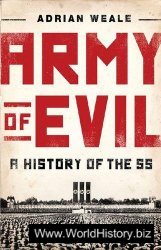The first Prologue question, ‘‘Is theology science?,’’ depends in part on what you mean by ‘‘science.’’ In the tradition descending from St. Augustine, ‘‘science’’ could be any form of knowledge by which the Christian faith could be ‘‘begotten, nourished, defended and strengthened’’ (On the Trinity. XIV, 1). Or, more technically, ‘‘science’’ could be knowledge of created things in contrast to ‘‘wisdom,’’ that is, the knowledge of divine things. However, in the Aristotelian tradition of the Posterior Analytics, ‘‘science’’ is of universal, essential, necessary causes of effects that are assented to because of evidence produced through a demonstrative syllogism. Duns Scotus, in his Ordinatio, examined the questions ‘‘Whether theology is science?’’ and ‘‘Whether theology is a subalternated science?’’ This combination of questions suggests that he has in mind Aquinas’ position that ‘‘sacred doctrine is a subalternated science.’’ In the meantime, many objections against Thomas’ contention, especially from Henry of Ghent and Godfrey of Fontaines, forced Scotus to examine the conditions for science in the strict Aristotelian sense of the term. This led him especially to discuss ‘‘certitude’’ and ‘‘evidence.’’ Scotus’ discussions of these terms drew critics, so that John of Reading, sympathetic to the views of Scotus, had to respond. In dealing with ‘‘certitude,’’ he was forced to deal with necessity as a ground for certitude. This led him into discussions of God’s absolute and ordained power, and while he admitted with Scotus that within the ordained order we could have some certitude because some things followed necessary laws, still, going beyond Scotus’ context for discussing the issue, he argued that by his absolute power, God could interfere with the ordained laws. He likewise dealt with ‘‘evidence,’’ and in the very same framework, he argued that we could have intuition of nonexisting objects if God chose absolutely to give us such knowledge. Reading was later criticized by the Benedictine, Robert Graystanes, for his defense of the possible intuition of nonexistents.
One of the subquestions regarding the formal cause or scientific character of the study of theology was the interrelationship of theology with other forms of science. Thomas Aquinas spoke of the study of theology as a subalternated science, subordinated to the knowledge of God and the blessed revealed in the sacred scriptures. Aquinas, once again, was criticized by his contemporaries Henry of Ghent and Godfrey of Fontaines on this point. It is against these two critics that John of Paris and William Peter of Godino, followers of Aquinas, attempted to respond by arguing that subalternation is a substitute expression for any form of hierarchical relationship. John of Reading centers his attention on Henry of Ghent and his Franciscan follower, Richard of Conington. However, his critique of Thomas’ view of subalternation is basically the same as that of Godfrey of Fontaines. Moreover, his demand for greater precision in contrasting ‘‘subalternation’’ with any other form of subordination indicates his discontent with the imprecision of John of Paris and William Peter of Godino. Unlike these defenders of Aquinas, John of Reading insists that ‘‘subalternation’’ is not a synonym for ‘‘subordination,’’ but rather a specific form of relationship between superior and inferior sciences. In this discussion, Reading thus seems to be responding to other sources than the ones he actually names, that is, Henry of Ghent and Richard of Conington.




 World History
World History









